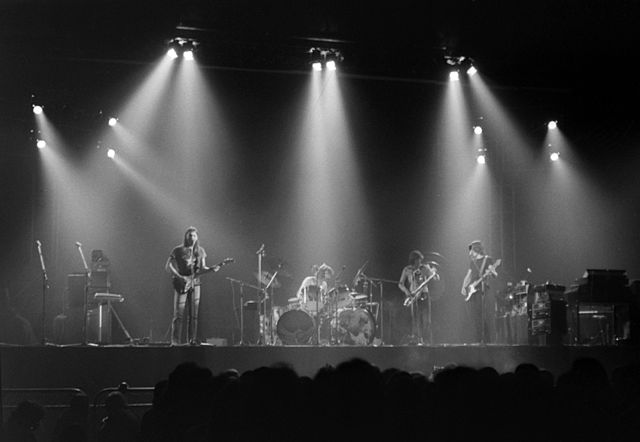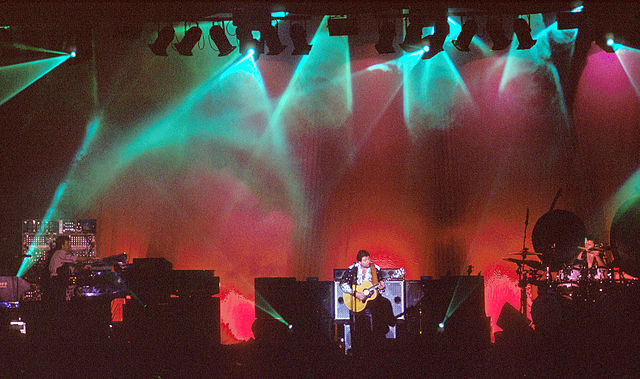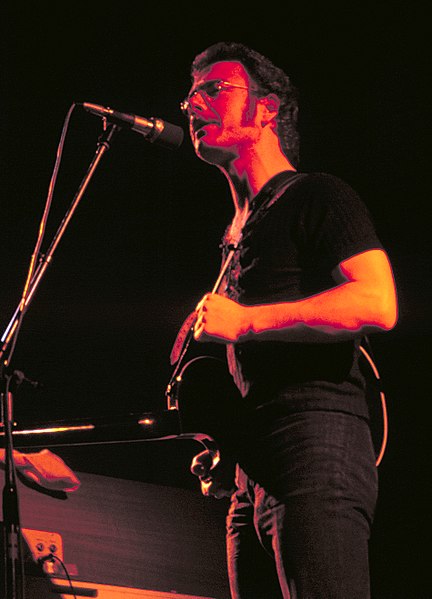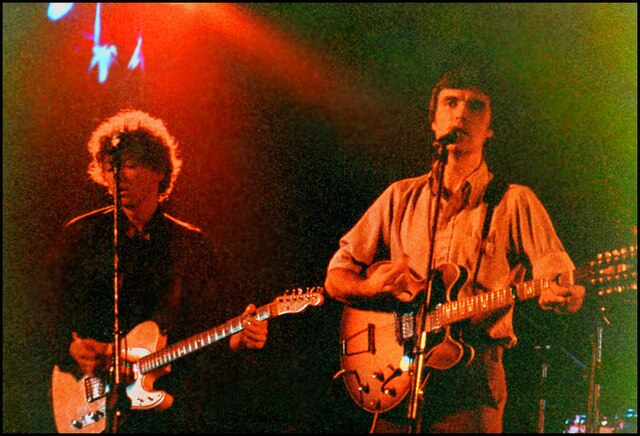Renaissance are an English progressive rock band, best known for their 1978 UK top 10 hit "Northern Lights" and progressive rock classics like "Carpet of the Sun", "Mother Russia", and "Ashes Are Burning". They developed a unique sound, combining a female lead vocal with a fusion of classical, folk, rock, and jazz influences. Characteristic elements of the Renaissance sound are Annie Haslam's wide vocal range, prominent piano accompaniment, orchestral arrangements and vocal harmonies.
Renaissance, 2012. Clockwise from upper left: Jason Hart, David J. Keyes, Rave Tesar, Frank Pagano, Michael Dunford, and Annie Haslam
Renaissance, 1979. Clockwise from upper left: Terry Sullivan, Michael Dunford, John Tout, Annie Haslam, and Jon Camp.
Progressive rock is a broad genre of rock music that primarily developed in the United Kingdom through the mid- to late 1960s, peaking in the early 1970s. Initially termed "progressive pop", the style was an emergence of psychedelic bands who abandoned standard pop traditions in favour of instrumentation and compositional techniques more frequently associated with jazz, folk, or classical music. Additional elements contributed to its "progressive" label: lyrics were more poetic, technology was harnessed for new sounds, music approached the condition of "art", and the studio, rather than the stage, became the focus of musical activity, which often involved creating music for listening rather than dancing.
Pink Floyd performing The Dark Side of the Moon (1973), the best-selling album of the entire progressive rock period.
Emerson, Lake & Palmer were one of the most commercially successful progressive rock bands of the 1970s. They are seen here performing in 1992.
King Crimson's Robert Fripp believed that the prog movement had gone "tragically off course".
Talking Heads' Jerry Harrison (left) and David Byrne, late 1970s






